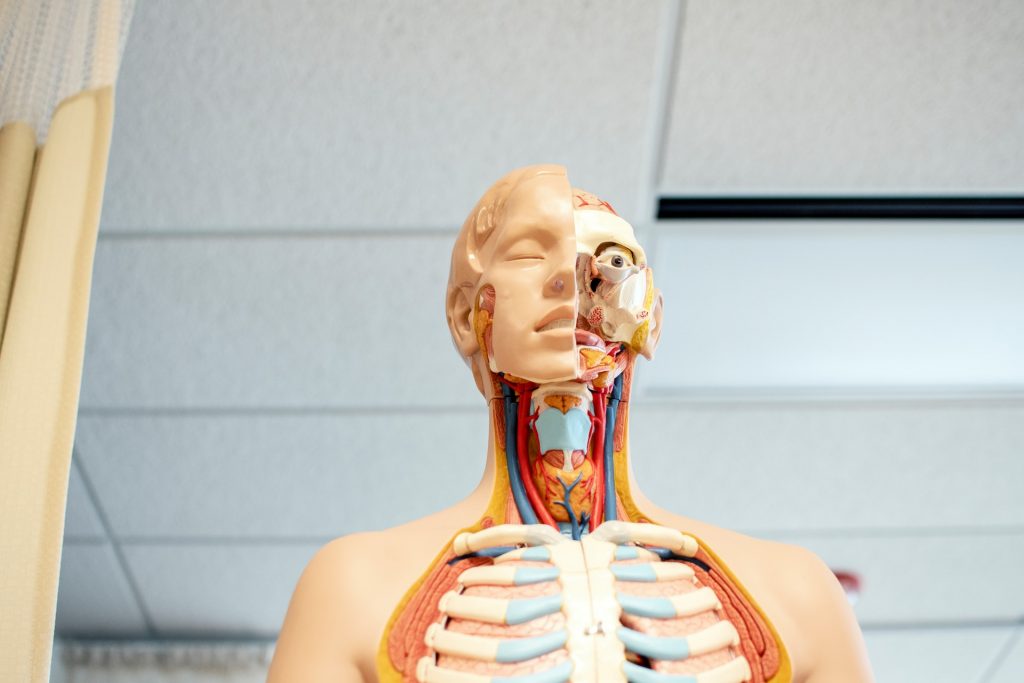The human body is a wondrous and complex creation with an infinite capacity for healing. But, as we all know, our bodies don’t always heal on their own or as quickly as we would like them to. We have therefore looked to the world around us in search of natural treatments that could aid in the healing process. From ancient remedies using herbs, essential oils, nutrition, and other holistic approaches to modern-day advances like acupuncture and massage therapy; there are now numerous options available when it comes to seeking out alternative ways to help heal our bodies naturally. In this blog post, we will discuss some of these various natural treatments, how they work, and how they can be used effectively to carry out the body’s repair processes more efficiently.

Naturopathy Options
Naturopathy, also known as naturopathic medicine, is an alternative medical system that emphasizes the body’s intrinsic ability to heal and maintain itself. Naturopaths often recommend a blend of modern scientific techniques and traditional remedies.
One well-known aspect of naturopathy is dietary intervention. By optimizing nutrition, naturopaths believe the body can heal more effectively. This could involve tailored diet plans, detoxification programs, or the use of specific food supplements. Herbal medicine is another common feature of a naturopathy treatment, utilizing plants’ medicinal properties, naturopaths often prescribe herbal remedies to support the body’s healing processes. Examples could include chamomile for relaxation and digestion, or echinacea to boost the immune system.
Physical therapies like massages, hydrotherapy, and acupuncture are also part of naturopathy. These treatments are used to relieve stress, improve blood circulation, and stimulate the body’s self-healing abilities.
Holistic Healing: Treating the Whole Person
Holistic healing revolves around the concept of treating the whole person – body, mind, and spirit – to achieve optimal health and wellness. According to the holistic viewpoint, finding the right balance in life is the key to achieving optimal health. This approach is not merely about eradicating symptoms, but about rooting out the cause of the ailment and improving overall well-being.
Mind-body therapies such as meditation, yoga, and Tai Chi are holistic practices that bring about a state of relaxation and tranquility. They aid in managing stress, improving mental clarity and resilience, and ultimately fostering an internal environment conducive to healing.
Homeopathic medicine, a holistic approach, uses minute doses of natural substances to stimulate the body’s self-healing abilities. The chosen remedies are tailored to the individual and their unique set of symptoms, rather than the disease they have.
Holistic healing also acknowledges the importance of lifestyle choices. Regular exercise, a balanced diet, sufficient sleep, and strong relationships all play crucial roles in overall health. By embracing a holistic approach to health, individuals empower themselves to take control of their well-being.
Herbal Remedies: Harnessing the Power of Plants
Herbal remedies involve the use of medicinal plants to stimulate the body’s natural healing processes. The power of these treatments lies in the unique compounds found within each plant, which have various effects on the body. For instance, the leaves of Ginkgo Biloba, a tree native to China, have been used for centuries to improve memory and cognitive function.
Meanwhile, the bright yellow spice, turmeric, contains a compound called curcumin which has potent anti-inflammatory and antioxidant properties. Then there’s St. John’s Wort, a plant traditionally used in the treatment of mild to moderate depression. These are just a few examples of the vast array of plants that provide therapeutic benefits. Herbal remedies can be consumed in various forms, including teas, capsules, tablets, tinctures, and topical creams or oils. As always, it’s vital to consult a healthcare professional before starting any new herbal regimen.
Mind-Body Techniques for Healing
Mind-body techniques, a key component of holistic healing, bridge the gap between mental and physical health, recognizing the impact of emotions and thought processes on physical well-being. These techniques aim to enhance the mind’s capacity to influence bodily functions and symptoms, thereby promoting healing and overall wellness.
Meditation, for instance, is a mind-body practice that introduces calm and balance into our lives. Regular meditation can decrease stress, enhance emotional well-being, and even improve certain medical conditions. Another powerful technique is mindfulness, which involves maintaining a moment-by-moment awareness of our thoughts, feelings, bodily sensations, and surrounding environment. Studies have shown that mindfulness can reduce stress, combat depression and anxiety, lower blood pressure, and improve chronic pain.
Yoga combines physical postures, breathing exercises, and meditation to boost physical and mental health. Regular yoga practice can improve flexibility, reduce stress, and enhance heart health. Similarly, Tai Chi, often described as “meditation in motion,” integrates slow, deliberate movements, meditation, and deep breathing.

Dietary Changes and Nutritional Therapy
Nutritional therapy forms a pillar of holistic healing, emphasizing dietary changes to support the body’s natural healing processes. This approach is founded on the belief that the foods we consume have a direct impact on our health and well-being.
Firstly, eliminating potentially harmful substances from the diet is a common recommendation. These include refined sugars, processed foods, artificial additives, and excessive caffeine or alcohol. Such substances can trigger inflammation, disrupt hormonal balance, and hamper the body’s detoxification processes.
Secondly, nutritionists encourage the inclusion of nutrient-dense foods in the daily diet. Whole grains, lean proteins, fruits, vegetables, and healthy fats are a few of these. These foods not only provide the body with essential nutrients for its functions but also contain potent antioxidants that fight off disease-causing free radicals.
Lastly, nutritional therapy may involve the use of dietary supplements such as vitamins, minerals, and probiotics. These are used to address any nutritional deficiencies and support overall health. It’s important to note that dietary changes should be made under the guidance of a healthcare professional to ensure they are safe and suitable for the individual’s health status.
In conclusion, natural treatments provide numerous health benefits and can be used to promote optimal wellness. These treatments are based on the principles of holistic healing, which takes into account the physical, mental, emotional, and spiritual components of our being. By embracing a natural approach to health, we can take control of our well-being and achieve a greater sense of balance in life.
Recent Posts
The Role of Senior Living Placement Services in Enhancing Quality of Life for Seniors
How can seniors find the best place to live as they get older? Choosing the right place is important for their health and happiness - senior living placement services help by finding the perfect...
Understanding the Concept of a Gift from God: A Spiritual Exploration
When we think about gifts, we often picture tangible items wrapped nicely in colorful paper. But a gift from God is different. It isn't something you can hold or touch. Instead, it's something...
